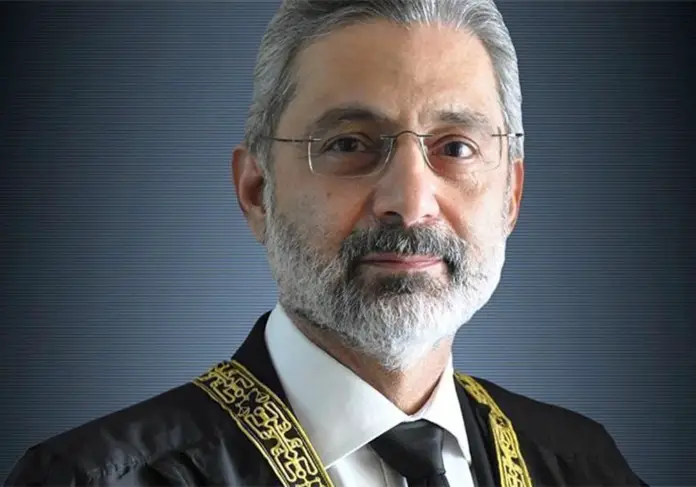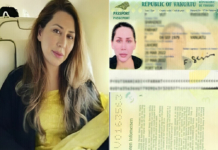Justice Qazi Faez Isa is always in the news. He dissented in the judges’ selection process but what made him outstanding was his hard-hitting judgment in the Faizabad dharna case.
Who is Justice Qazi Faez Isa?
Judge Qazi Faez Isa, the son of the late Qazi Mohammad Isa, was born in Quetta on October 26, 1959.
The father of Justice Isa was the first lawyer in the province to receive the Bar-at-Law degree. After returning from London, he assisted in founding the All India Muslim League in Balochistan. Quaid-e-Azam nominated him to lead the provincial league, and he held the distinction of being the only Balochistani on the Central Working Committee of the All India Muslim League.
Judge Isa was admitted to the Bar of England and Wales (Middle Temple, 1982) and registered as a Balochistan-based barrister of the Balochistan High Court and Supreme Court.
Once the emergency was declared on November 3, 2007, he declined to testify before judges who had broken their oath of office. After the Supreme Court ruled that the November 3, 2007 action was unconstitutional, all of the High Court of Balochistan’s judges at the time submitted their resignations.
On August 5, 2009, Justice Isa was subsequently promoted directly to the position of Chief Justice of the High Court of Balochistan.
Judge Isa was the only judge on the High Court at the time of his ascension. He proposed judges, all of whom were confirmed, and the High Court of Balochistan was thus restored.
On September 5, 2014, Justice Qazi Faez Isa took his oath to serve as a judge of the Pakistani Supreme Court. He has been married to his wife for 36 years, and they presently reside in Islamabad. He is blessed with three grandkids in addition to having a son and a daughter.
The decisions rendered by Judge Isa show a strong commitment to upholding the Constitution and the Rule of Law. He also takes great care to protect the general welfare. The following are quotes from Justice Isa’s most illustrious rulings. He penned a forceful dissent in the case criticizing the Constitution’s Twenty-first Amendment, which allowed civilians to be tried in military courts (District Bar Association, Rawalpindi v Federation of Pakistan, PLD 2015 Supreme Court 410, at 1158-1209).







